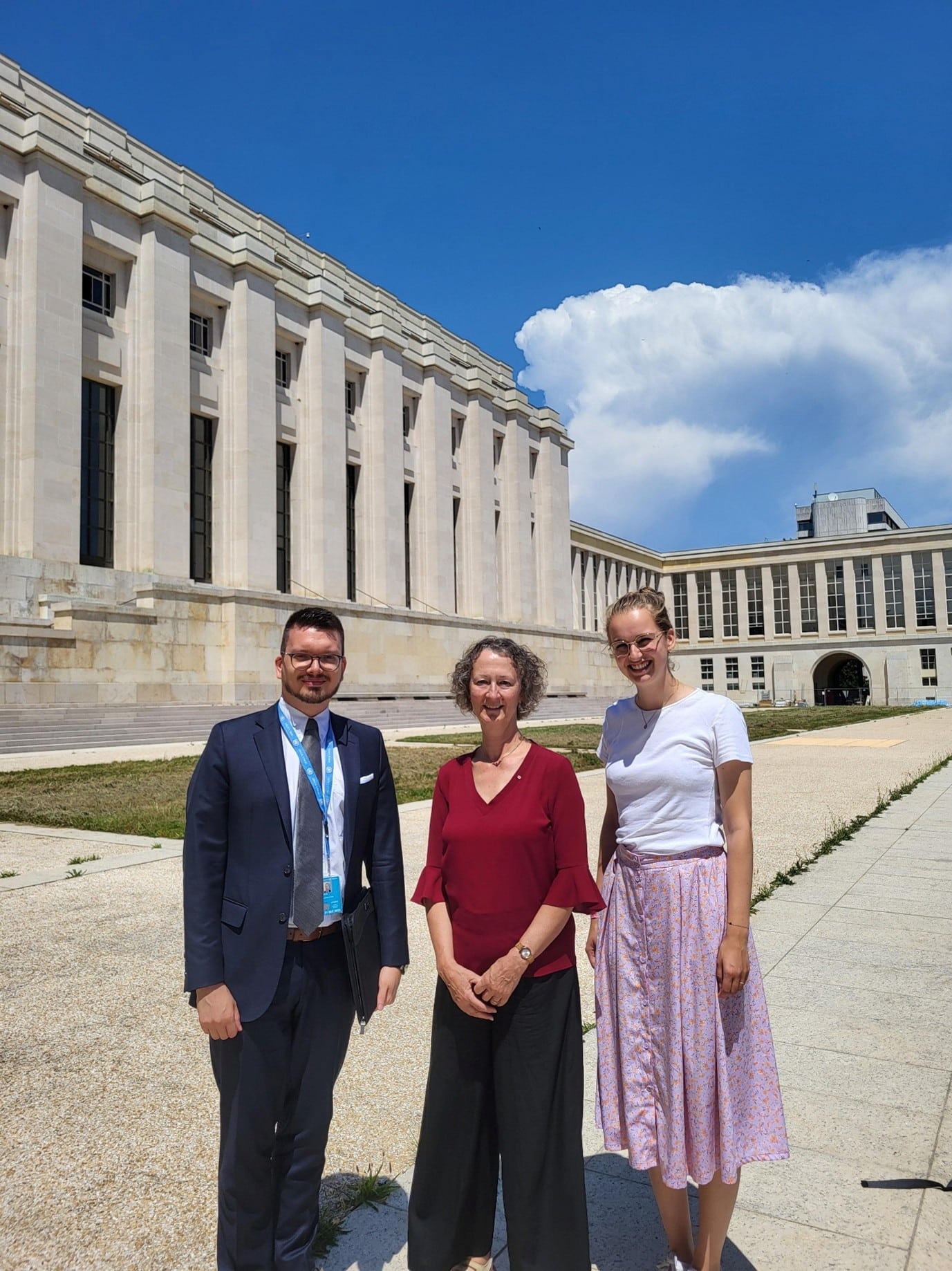100,000 Chin People Seek Refuge in Mizoram State, India
Washington D.C. – In today's released report Seeking Refuge: The Chin People in Mizoram State, India, the report authors and leading refugee and human rights experts, call on the central government of India and Mizoram State to respond to the protection and humanitarian crisis of up to 100,000 Chins from Chin State, Burma, who are seeking refuge in Mizoram State, India.
The 134-page report documents the protection and humanitarian challenges that the people of Chin State, Burma, face as they seek refuge in neighboring Mizoram State, India. They face serious problems related to protection, livelihood, health, and education. The report also describes how the Chins' forced migration burdens the host community of Mizoram and the Indian central government. The Chins seeking refuge make up almost 10% of Mizoram's population, which is 95% Christian. The Chins in Mizoram have been out of sight and out of mind for the international community because of long standing travel restrictions to the region and because UNHCR has had no access to Mizoram.
The delegation responsible for this report was only able to travel to the region and assess the protracted, urban refugee situation after the central government of India lifted the travel restrictions in December 2010. "Our report shows that Chins from Burma face serious protection and humanitarian problems in Mizoram, India," said Matthew Wilch, a U.S. human rights lawyer and the lead author and editor of the report. "They have no status or protection under the law and many suffer chronic economic insecurity, lacking adequate and stable shelter, food security, health, and education. Mizoram is burdened, too, by the large forced migration of Chin people. Addressing the Chin people's protection and humanitarian needs and reducing Mizoram's burden should be part of the larger discussion about Burma."
The Chins' forced migration from Burma has occurred continuously since the Burmese military took over in a military coup in 1962 and most heavily since the crackdown in 1988 against the pro-democracy movement in Burma. The abuses in Chin State, Burma, have included, among others, forced labor, torture, and religious persecution.
"There has been a lot of attention on the possible political openings within Burma," observed Dan Kosten, Chair of Refugee Council, USA, a coalition of U.S. based refugee resettlement agencies and human rights groups concerned about refugees. "We urge that attention also be paid to the refugee protection crises for ethnic and religious minority groups like the Chins who have been forced to flee from Burma. This report describes why the Chins fled and what challenges they and their host community have as they seek refuge in Mizoram State, India."
"We are cautiously optimistic about Burma's move toward democracy," concluded Joel Charny, Vice-President for Humanitarian Policy and Practice of InterAction, the largest coalition of U.S. based international, nongovernmental, humanitarian aid and development organizations. "But whatever long-term change comes to Burma, there are immediate protection and humanitarian crises for minority ethnic groups from Burma such as the 100,000 Chins in Mizoram State, India. The international community needs to heed this report, help the Chins, and partner with the host country of India to reduce their burden."
The report also calls upon the European Union, the United States, and other concerned countries, United Nations High Commissioner for Refugees, nongovernmental organizations, faith based groups, and the international community to partner with India and Mizoram State to protect the Chins in Mizoram and to reduce the humanitarian burden on Mizoram State and the host country of India.
For more information and download of the report, go to: http://chinseekingrefuge.com/
For a personal report by Jenny Yang, Director of Advocacy and Policy at World Relief, go to: http://worldreliefresponds.com/chin-refugee-in-india/
############
This report is based on an assessment trip to India from April 7, 2011, to May 2, 2011, where the delegation not only conducted town hall meetings, focus groups, and individual interviews with the Chin church and community leaders in five districts across the state but also with the local government, community, and church leaders. The trip delegation included Matthew Wilch, JD, and Zo Tum Hmung (Masters in Public Administration, Harvard Kennedy School) a Chin community activist, who were funded by the Chin Baptist Churches USA; Jenny Yang, Director of Advocacy and Policy for the Refugee and Immigration Program of World Relief; Steven Rubin, professional photographer and Assistant Professor of Art, Pennsylvania State University, funded by Lutheran World Federation; Dr. Vijayakamar James, Director, and Polly Mondal, Monitoring Officer at the Program Department, Lutheran World Service India Trust; Dr. Prakash Louis, SJ, Jesuit Refugee Service South Asia Regional Director; and Rabindran Shelley, India Country Director, World Relief.
Refugee Council USA and InterAction are the leading U.S. nongovernmental networks that provide refugee protection and humanitarian assistance in the U.S. and internationally. The two coalitions wrote the foreword and statements of support for the report. Other statements of support came from Baptist World Alliance, Jesuit Refugee Service/USA, Lutheran World Federation, Migration and Refugee Services of the U.S. Catholic Conference of Bishops, Women's Refugee Commission, World Evangelical Alliance, and World Relief.





Stay Connected